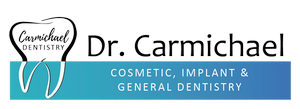Top Dental Conditions that Are Considered an Emergency

Dental emergencies can happen when you least expect them. Knowing what situations require immediate attention, whether a sudden injury or a severe toothache. While not all dental problems need to be treated urgently, certain conditions can cause lasting damage or extreme pain if left untreated. Recognizing a dental emergency and knowing when to seek professional help can save your tooth and reduce discomfort.
Severe Tooth Pain
Severe tooth pain is one of the most common signs of a dental emergency. The pain may result from tooth decay, an abscess, or even a cracked tooth. If you’re experiencing sharp or throbbing pain, especially if it doesn’t go away with over-the-counter painkillers, it’s time to seek dental attention. Ignoring severe tooth pain could lead to further damage and make the situation worse. An untreated infection can spread to other parts of your mouth or even your bloodstream, causing serious health risks.
Knocked-Out Tooth
A knocked-out tooth is another dental emergency that requires immediate care. If you lose a tooth due to trauma, such as an accident or sports injury, it is crucial to act fast. In many cases, a tooth can be successfully re-implanted if you see a dentist within an hour of the injury. Keep the tooth clean and try to place it back into the socket, but if that’s not possible, store it in milk or a tooth preservation kit. Time is of the essence, so don’t delay seeking dental care to improve the chances of saving the tooth.
Cracked or Broken Teeth
Cracked or broken teeth can result from chewing something hard, a fall, or even an untreated cavity. These injuries are often painful and may expose the inner part of your tooth, making it more vulnerable to infection if it breaks or cracks; getting to a dentist as soon as possible is essential. While waiting for your appointment, you can manage the pain by applying a cold compress to the affected area. Depending on the severity of the damage, your dentist may be able to restore the tooth with a crown or other treatments.
Gum and Soft Tissue Injuries
In addition to injuries to your teeth, your gums and soft tissues are also vulnerable to trauma. Cuts or tears in the gums, tongue, or the inside of the cheek can bleed heavily and cause significant pain. If you experience a soft tissue injury, rinse your mouth with warm water to clean the wound and apply pressure with a clean cloth or gauze to stop the bleeding. It’s also important to contact your dentist immediately, as they may need to stitch the area to promote proper healing and prevent infection. Severe injuries, like those caused by a car accident or sports-related impact, may require more extensive treatment.
Infections and Abscesses
Dental infections and abscesses can develop when bacteria enter the tooth or gums, often due to untreated cavities or gum disease. These infections cause swelling, pain, and sometimes a fever. You may have an abscess if you notice pus around your gums or a bad taste in your mouth. Getting medical attention quickly is essential, as untreated infections can lead to serious complications, including the spread of bacteria to other parts of your body. Your dentist will likely prescribe antibiotics and may need to drain the abscess or perform a root canal to remove the infection.
Wrapping Up Your Dental Emergency Care
Dental emergencies can be stressful, but knowing what to do can make all the difference. Prompt action is crucial to ensuring the best possible outcome, whether severe pain, a knocked-out tooth, or an abscess. If you ever need emergency dental care, don’t hesitate to contact a trusted professional for help. Call Carmichael DDS at (858) 330-2678 or complete our online form to schedule your consultation today!




